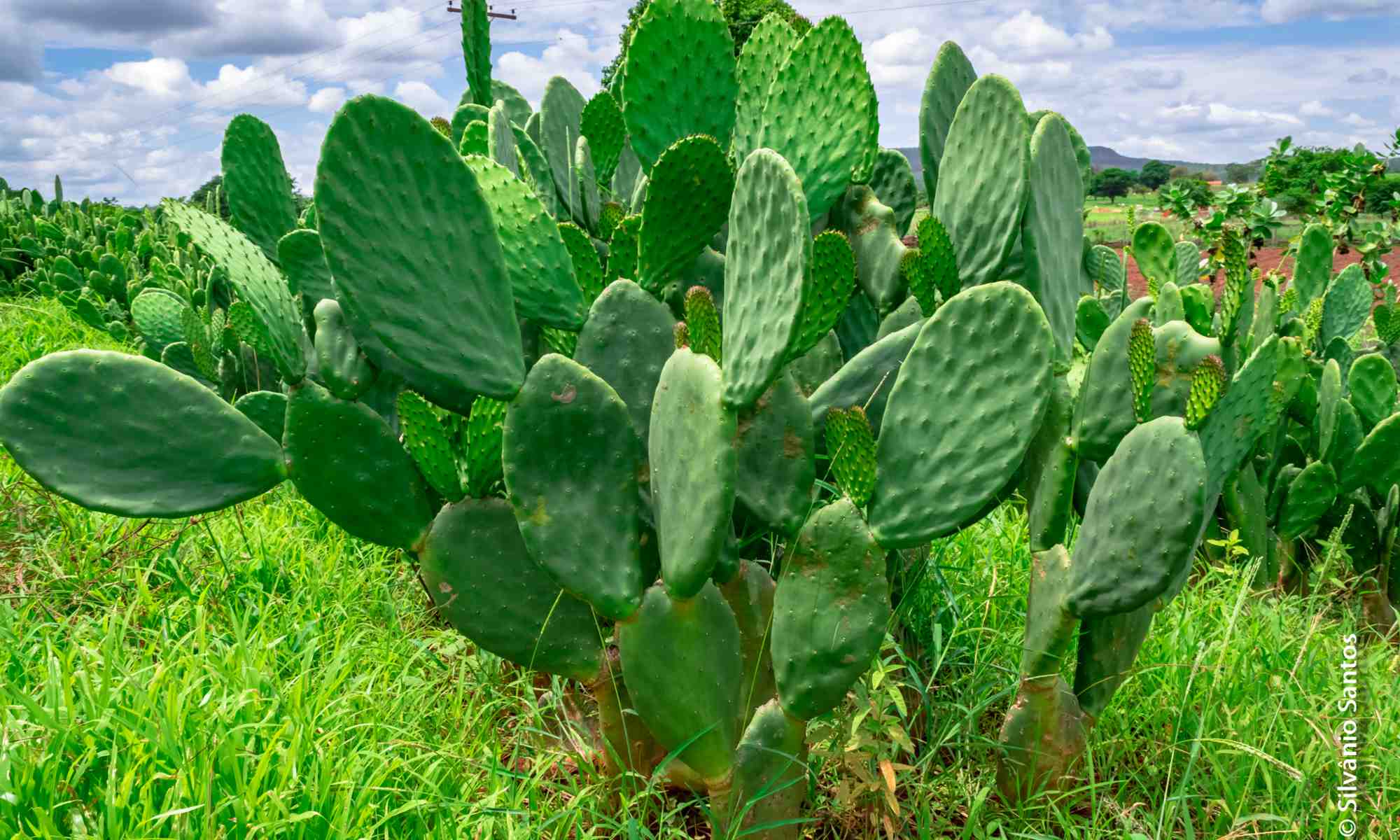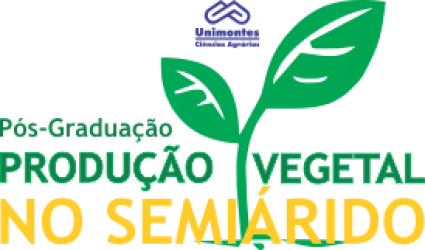- Version
- Download 20
- File Size 1.24 MB
- Create Date 14/06/2021
- Download
SANTOS, Bruna Hanielle Carneiro dos. Bactérias de diferentes nichos no controle do complexo Fusarium spp x Meloidogyne e na produtividade da bananeira. 2019. 87 p. Tese (Doutorado em Produção Vegetal no Semiárido) – Universidade Estadual de Montes Claros, Janaúba, 2019.
Com o objetivo de estudar a bioaumentação de antagonistas na rizosfera de bananeira como estratégia de manejo do complexo Fusarium x nematoide, foram realizados três experimentos. Inicialmente, avaliou-se épocas de inoculação de bactérias no controle de F. oxysporum f. sp. cubense e de M. javanica em mudas micropropagadas de bananeira ‘Prata-Anã’. O experimento foi conduzido em casa de vegetação em esquema fatorial 2 x 12 + 3, sendo: duas épocas de aplicação dos agentes de biocontrole, durante o período de aclimatação (Época 1) e após plantio em vasos (Época 2); 12 isolados bacterianos; e três tratamentos adicionais: 1) mudas inoculadas com foc; 2) mudas inoculadas com foc + produto biológico comercial a base de Trichoderma asperellum e 3) testemunha absoluta sem inoculação de patógeno e agentes bacterianos. Para o ensaio no controle de M. javanica os tratamentos adicionais constituíram de: 1) mudas inoculadas com M. javanica; 2) mudas inoculadas M. javanica + produto biológico comercial a base de Bacillus metlylotrophicus) e 3) testemunha absoluta sem inoculação de patógeno e isolados bacterianos. No 2º experimento, foi avaliado a reação das variedades Prata-Anã e Maçã ao nematoide M. javanica (Mj) e ao fungo F. oxysporum f. sp. cubense (foc), e as interações entre eles e o efeito de Bacillus sp na reprodução do nematoide e na severidade da murcha de Fusarium. O experimento foi conduzido em casa de vegetação em delineamento inteiramente casualizados (DIC), com sete repetições em esquema fatorial de 2 x 7 sendo: duas variedade de banana Prata-Anã e Maçã, e sete tratamentos: 1) Testemunha absoluta (sem patógeno e agente de biocontrole); 2) mudas inoculadas com foc e nematoide mais o agente de biocontrole (Bacillus sp. E-09); 3) mudas inoculadas com foc e nematoide sem o agente de biocontrole; 4) mudas inoculadas com foc e o agente de biocontrole (Bacillus sp. E-09); 5) mudas inoculadas com foc sem o agente de biocontrole; 6) mudas inoculadas com Mj e o agente de biocontrole (Bacillus sp. E-09); 7) mudas inoculadas com Mj sem o agente de biocontrole. No 3º experimento, foi avaliado a formulação de Bacillus sp. em arroz, como inoculante na cultura da banana visando a promoção de crescimento. O experimento foi conduzido em uma área de cultivo comercial de bananeira, na cidade de Nova Porteirinha – MG, no período de setembro de 2017 a dezembro de 2018. O delineamento experimental foi em blocos casualizado em esquema fatorial 2 x 4, os tratamentos consistiram de duas variedades de banana Maçã e Prata-Anã e aplicação de três formulações com espécies de microrganismos e a testemunha absoluta. As épocas de aplicação dos isolados bacterianos interferem no controle da murcha de Fusarium e M. javanica em mudas micropropagadas de bananeira ‘Prata-Anã’. Os isolados B. subtilis (R-34), Bacillus sp. (R-76), Bacillus sp. (E-07), B. pumilus (E-09) e Bacillus sp. (E-13) reduzem o índice de gravidade da doença quando aplicados após o plantio das mudas de bananeira ‘Prata-Anã’. Os isolados B. subtilis (R-34), B. subtilis (R-42), Bacillus sp (R-76) e B. pumilus (E-09) reduzem a capacidade reprodutiva de M. javanica, quando inoculados na aclimatação e após o plantio de mudas de bananeira ‘Prata Anã’ em vasos (Experimento 1). A presença simultânea de M. javanica e foc sem a inoculação de Bacillus sp. aumenta a reprodução de nematoides e a severidade da murcha de Fusarium. A presença do isolado Bacillus sp. reduz a reprodução de nematoides e severidade de murcha de Fusarium. O isolado Bacillus sp. E-09 apresenta potencial para o tratamento de mudas de bananeira visando o controle de M. javanica e da murcha de Fusarium (Experimento 2). O número de frutos por penca, massa do cacho, massa da penca, massa do engaço e o diâmetro do fruto de bananeira foram significativamente influenciados pelo uso dos produtos biológicos, principalmente os contendo espécies de Bacillus spp. Nas condições de campo testada Bacillus sp. (E-09) se mantém até 180 dias na formulação a base de arroz e aumenta número de frutos por penca, massa do cacho e o diâmetro do fruto em bananeira; T. asperellum aumenta a produtividade de banana ‘Maçã’ (Experimento 3).
Palavras-chave: Bactérias promotoras do crescimento em plantas (BPCP), Controle biológico, Musa spp.
Bacteria of different niches in the control of the complex Fusarium spp x Meloidogyne and banana productivity
Aiming to study the bioaumentation of antagonists in the banana rhizosphere as a management strategy of the Fusarium x nematoid complex, three experiments were carried out. In the 1º experiment, inoculation times of bacteria were evaluated in the control of F. oxysporum f. sp. cubense and M. javanica on micropropagated seedlings of ‘Prata-Anã’ banana tree. The experiment was conducted in a greenhouse under a 2 x 12 + 3 factorial scheme, being: two application times of the biocontrol agents during the acclimatization period (Season 1) and after planting in pots (Season 2); 12 bacterial isolates; and three additional treatments: 1) inoculated seedlings with foc; 2) seedlings inoculated with foc + commercial biological product based on Trichoderma asperellum and 3) absolute control without inoculation of pathogen and bacterial agents. For the control trial of M. javanica the additional treatments consisted of: 1) seedlings inoculated with M. javanica; 2) inoculated seedlings M. javanica + commercial biological product based on Bacillus metlylotrophicus) and 3) absolute control without inoculation of pathogen and bacterial isolates. In the 2º. experiment, the reaction of the varieties ‘Prata-Anã and Maçã’ was evaluated to the nematode M. javanica (Mj) and the fungus F. oxysporum f. sp. cubense (foc), and the interactions between them and the effect of Bacillus sp on nematode reproduction and on the severity of Fusarium wilt. The experiment was conducted in a completely randomized design with seven replications in a 2 x 7 factorial scheme: two varieties of ‘Prata-Anã and Maçã’ banana, and seven treatments: 1) Absolute Witness (without pathogen and biocontrol agent); 2) seedlings inoculated with foc and nematoid plus the biocontrol agent (Bacillus sp. E-09); 3) seedlings inoculated with foc and nematoid without the biocontrol agent; 4) seed inoculated with foc and the biocontrol agent (Bacillus sp. E-09); 5) seedlings inoculated with foc without the biocontrol agent; 6) seedlings inoculated with Mj and the biocontrol agent (Bacillus sp. E-09); 7) seedlings inoculated with Mj without the biocontrol agent. In the 3º experiment, the formulation of Bacillus sp. in rice, as an inoculant in banana cultivation aimed at promoting growth. The experiment was carried out in a commercial banana growing area, in the city of Nova Porteirinha - MG, from September 2017 to December 2018. The experimental design was a randomized block design in a 2 x 4 factorial scheme, treatments consisted of two banana varieties Maçã and Prata-Anã and application of three formulations with species of microorganisms and the absolute control. The application times of the bacterial isolates interfere in the control of the wilt of Fusarium and M. javanica in micropropagated banana seedlings ‘Prata-Anã’. The isolates B. subtilis (R-34), Bacillus sp. (R-76), Bacillus sp. (E-07), B. pumilus (E-09) and Bacillus sp. (R-34), B. subtilis (R-42), Bacillus sp. (E-13) is a severity of the Fusarium wilt when submitted to the planting of ‘Prata-Anã’ banana seedlings. The isolates B. subtilis (R-34), B. subtilis (R-42), Bacillus sp (R-76) and B. pumilus (E-09) a reproductive capacity of M. javanica, when inoculated in acclimatization and after the planting of ‘Prata Anã’ banana seedlings in pots (Experiment 1). The simultaneous presence of M. javanica and foc without the inoculation of Bacillus sp. increases nematode reproduction and the severity of Fusarium wilt. The presence of Bacillus sp. reduces nematode reproduction and Fusarium wilt severity. The isolate Bacillus sp. Epi 09 presents potential for the treatment of banana tree seedlings for control of M. javanica and Fusarium wilt (Experiment 2). The number of fruits per shoot, shoot mass, shoot mass, shoot mass and diameter of the banana fruit were significantly influenced by the use of biological products, especially those containing Bacillus spp. Under field conditions tested Bacillus sp. (E-09) is maintained up to 180 days in the formulation based on rice and increases number of fruits per penca, mass of the bunch and the diameter of the fruit in banana tree; T. asperellum increases productivity of ‘Maçã’ banana tree (Experiment 3).
Keywords: Biological control, Growth-promoting bacteria in plants (GPBP), Musa spp.

